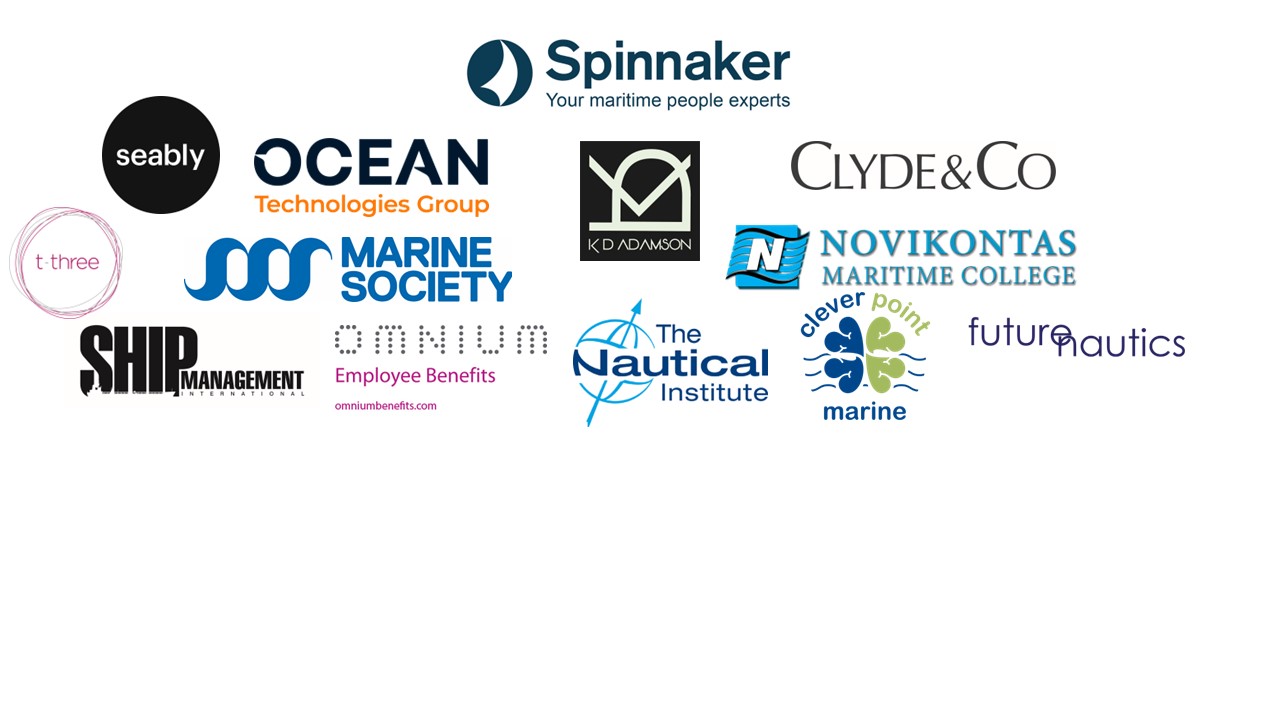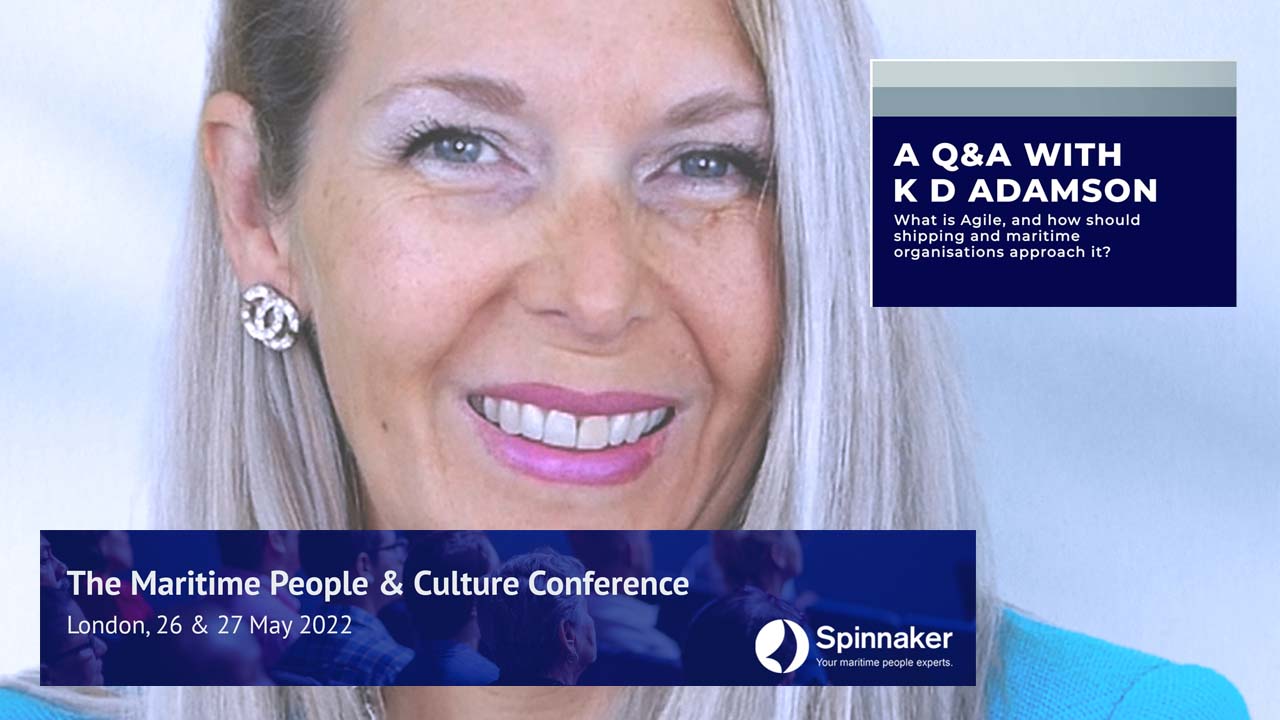I sat down this week with my colleagues in the senior recruitment leadership team at Spinnaker to discuss the state of the maritime recruitment market.
It should come as no surprise that it’s not business as usual. Whereas there is usually a trend, whether it’s up or down, the only consistent thing about the market for the last two years is that it is very inconsistent. “One day it’s up, the next it’s down,” according to Spinnaker Director David Tubb. “It changes with the wind.” However, David agrees with Spinnaker’s MD of Executive Search Teresa Peacock that “people seem to be more optimistic in terms of their recruitment plans at the moment; there’s a sense that clients are positioning themselves for a better year in that respect. Old jobs that were on hold are crawling out of the woodwork and there is a renewed interest to see CVs and candidates for those jobs.”
Overall recruitment volume is up at the moment. Director of commercial recruitment, Matt Cornelius, says the market is “really competitive” for operations and chartering staff, particularly in dry bulk and that a number of companies have given “solid” pay rises and bonuses recently, which naturally makes it more difficult for their competitors to tempt staff away.
There is a palpable supply-side shortfall. A lot of people have left the workplace thanks to covid – the consequences of people deciding to make lifestyle changes and to take early retirement cannot be overstated. Only a small amount of Spinnaker’s recruitment is for UK employers, but the situation there is exacerbated by Brexit and the loss of a significant potential workforce. Put together, these factors mean that shipping is facing even tougher competition than usual from other sectors that are facing the same supply problems.
Across industry, inexperienced and unskilled people have choice in a way that we’ve never seen before. The market for support staff, for graduates and second-jobbers is red hot. As a group, these people will never before have felt so wanted. It’s making recruitment very difficult for employers who are having to pay inflated salaries for people with little or no experience and who, on paper, might previously have been their second choice. At the same time, the recruitment process is frustrating to say the least, with no-shows and poor communication from candidates becoming run of the mill. We have certainly been on the receiving end of this ourselves in our search for new junior members of the Spinnaker team.
But it is what it is. We can speculate about how sustainable this situation is and whether we’re setting up the younger generation for unrealistic expectations, but that doesn’t change the here and now. If you need staff, you have to fish in the same pond as everyone else and cope with the same market conditions.
Employers are in an impossible position. Inflation is at levels not seen for decades, interest rates are rising, there is a war in Europe, we’re just emerging from covid and understandably they (we) are keen to keep control of costs while fighting to retain their staff and to hire new staff in a tight market.
The reality check is this: If you do have to hire at the moment, then it’s crucial to understand the current market and to get the salary budget right at the outset, or face a long and frustrating process. If you don’t have to hire and can wait things out to see if the market settles down, then that is an option worth considering.
David Tubb again: “Candidates can pick and choose at the moment, whether that’s new entrants, accounts staff, lawyers or technical superintendents. I know of accounts staff getting for or five headhunting calls and social media messages a day. You have to move fast – you snooze, you lose. Some get this and others are completely blind to it. There is no point making optimistic job offers at the moment by which I mean below candidates’ current salary levels or below clear indications of what the candidates are looking for.”
Of course, there will always be a natural tendency to think a recruitment consultant who gets paid a percentage of salary has a vested interest in talking the market up. The truth though is that recruiters – other [partly] than executive search consultants – only get paid if they make placements. Their motivation is to fill the job. If the candidate turns an offer down due to salary, it is just as likely in today’s marketplace that both the client and the recruiter lose out. “Our interests are aligned therefore,” says Matt Cornelius. “I’ve had to learn to be unequivocal in what I say to clients, otherwise I’ll just be wasting their time and mine and that’s no good for anyone.”
Steve Cox, Spinnaker’s CEO notes the difficulty for employers: “I don’t think it’s arrogance that drives employers to try their luck despite the advice they’re being given. If you are looking for one new hire in a team of ten, you have a real problem if you break existing pay scales for that one new person. At the same time, competitors are sniffing around as they too are struggling to recruit. So, what we’re seeing is quite a lot of offers being turned down due to existing employers making defensive counter-offers and competing new employers offering more money. In the current economic climate, it’s even easier than usual to understand why candidates are accepting the higher offers.”
That all being said, it’s not 100% about the money. Covid has shifted the balance of power when it comes to employee demands to work from home. It’s quite normal in the current market for candidate interest in roles to be subject to some guarantee of hybrid working. Two days a week from home is probably the most common request.
But, while there is much more focus on company culture nowadays, we don’t see too much of that at the recruitment stage – that tends to come when candidates are on the inside – the exceptions being vacancies with companies known to have high staff turnover or long-hours cultures.
When it comes to cross-border recruitment, there has also been a shift, this time in employer willingness to hire overseas workers based from home, but a number of assignments we have been involved in have not come to fruition due to the practicalities and legalities: where is the employment contract legally situated, which tax laws apply, must a local subsidiary company by set up to employ the new hire, can they not work as self-employed…and so on? As with salaries, we have learned from experience that it’s important to explain to employers what’s involved before they get too far down the line with someone without thinking all of this through.
So, the market is odd, it’s often frustrating, but it’s buoyant …this week that is!
It’s also a candidate’s market and that means that now is a good time for candidates with a genuine reason for wanting to change jobs to make their move – lack of promotion opportunity, a desire for different experience, personality clashes and so on are the usual push-factors and short-term salary increases don’t tend to solve those problems for long so candidates motivated by this sort of thing are so much less likely to accept a counter-offer.
Phil Parry, Spinnaker



